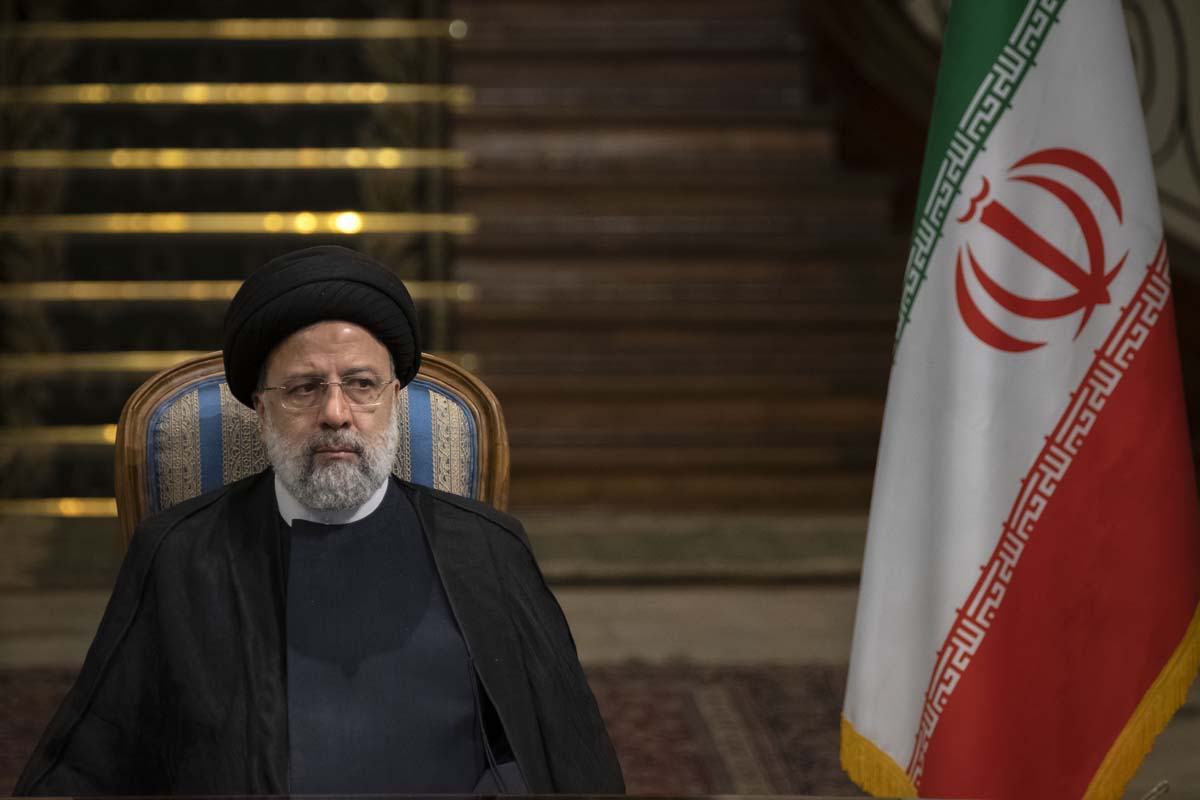
403
Sorry!!
Error! We're sorry, but the page you were looking for doesn't exist.
Iran looking to dodge army clash with America
(MENAFN) In a significant development, Iranian Supreme Leader Ayatollah Ali Khamenei has reportedly issued directives to Iranian officials, urging them to avoid provoking the United States into a direct military confrontation. Instead, the leadership has been instructed to be prepared to respond if the United States launches any strikes on Iranian soil. The New York Times, citing three Iranian sources, reported that these orders were issued during an emergency meeting of Iran's Supreme National Security Council held on Monday.
The emergency meeting followed an attack by a militia group aligned with Iran on a United States army outpost in Jordan, resulting in the death of three American soldiers and numerous injuries. During the meeting, which included top officials such as Iranian President Ebrahim Raisi, Foreign Minister Hossein Amir-Abdollahian, and military chiefs, the council discussed potential United States responses to the attack. The sources revealed that the council assessed two likely scenarios: a direct United States attack on Iran or a limited response targeting militias in Iraq and Syria.
Faced with these possibilities, Ayatollah Khamenei reportedly issued "clear orders," emphasizing the avoidance of a direct war with the United States while urging officials to distance Iran from actions carried out by proxy groups. However, the directive also underscored the importance of being prepared to retaliate if the United States were to strike Iranian territory.
These directives align with subsequent statements from Iranian officials. On Monday, Foreign Ministry spokesman Nasser Kanaani denied any involvement in the Jordan attack, emphasizing that various militia groups in the region "do not take orders from the Islamic Republic of Iran."
Notably, the influential Iraq-based militia Kataib Hezbollah announced a suspension of "military and security operations against the occupation forces [United States troops]," asserting its independent decision-making regardless of Tehran's influence.
The reported orders from Ayatollah Khamenei provide insight into Iran's strategic approach, balancing the need to avoid direct conflict with the United States while maintaining the ability to respond to potential military actions. The delicate situation highlights the complexities in the region and the challenges faced by Iran in managing its relationships with proxy groups amid escalating tensions with the United States.
The emergency meeting followed an attack by a militia group aligned with Iran on a United States army outpost in Jordan, resulting in the death of three American soldiers and numerous injuries. During the meeting, which included top officials such as Iranian President Ebrahim Raisi, Foreign Minister Hossein Amir-Abdollahian, and military chiefs, the council discussed potential United States responses to the attack. The sources revealed that the council assessed two likely scenarios: a direct United States attack on Iran or a limited response targeting militias in Iraq and Syria.
Faced with these possibilities, Ayatollah Khamenei reportedly issued "clear orders," emphasizing the avoidance of a direct war with the United States while urging officials to distance Iran from actions carried out by proxy groups. However, the directive also underscored the importance of being prepared to retaliate if the United States were to strike Iranian territory.
These directives align with subsequent statements from Iranian officials. On Monday, Foreign Ministry spokesman Nasser Kanaani denied any involvement in the Jordan attack, emphasizing that various militia groups in the region "do not take orders from the Islamic Republic of Iran."
Notably, the influential Iraq-based militia Kataib Hezbollah announced a suspension of "military and security operations against the occupation forces [United States troops]," asserting its independent decision-making regardless of Tehran's influence.
The reported orders from Ayatollah Khamenei provide insight into Iran's strategic approach, balancing the need to avoid direct conflict with the United States while maintaining the ability to respond to potential military actions. The delicate situation highlights the complexities in the region and the challenges faced by Iran in managing its relationships with proxy groups amid escalating tensions with the United States.

Legal Disclaimer:
MENAFN provides the
information “as is” without warranty of any kind. We do not accept
any responsibility or liability for the accuracy, content, images,
videos, licenses, completeness, legality, or reliability of the information
contained in this article. If you have any complaints or copyright
issues related to this article, kindly contact the provider above.
Most popular stories
Market Research

- Zebu Live 2025 Welcomes Coinbase, Solana, And Other Leaders Together For UK's Biggest Web3 Summit
- Ozak AI Partners With Pyth Network To Deliver Real-Time Market Data Across 100+ Blockchains
- Solotto Launches As Solana's First-Ever Community-Powered On-Chain Lottery
- Stocktwits Launches Stocktoberfest With Graniteshares As Title Partner
- Casper (CSPR) Is Listed On Gate As Part Of Continued U.S. Market Expansion
- VUBE Exchange Announces Unified Account Integration Across VUBE Pro, VUBE Plus, And VUBE Max


















Comments
No comment